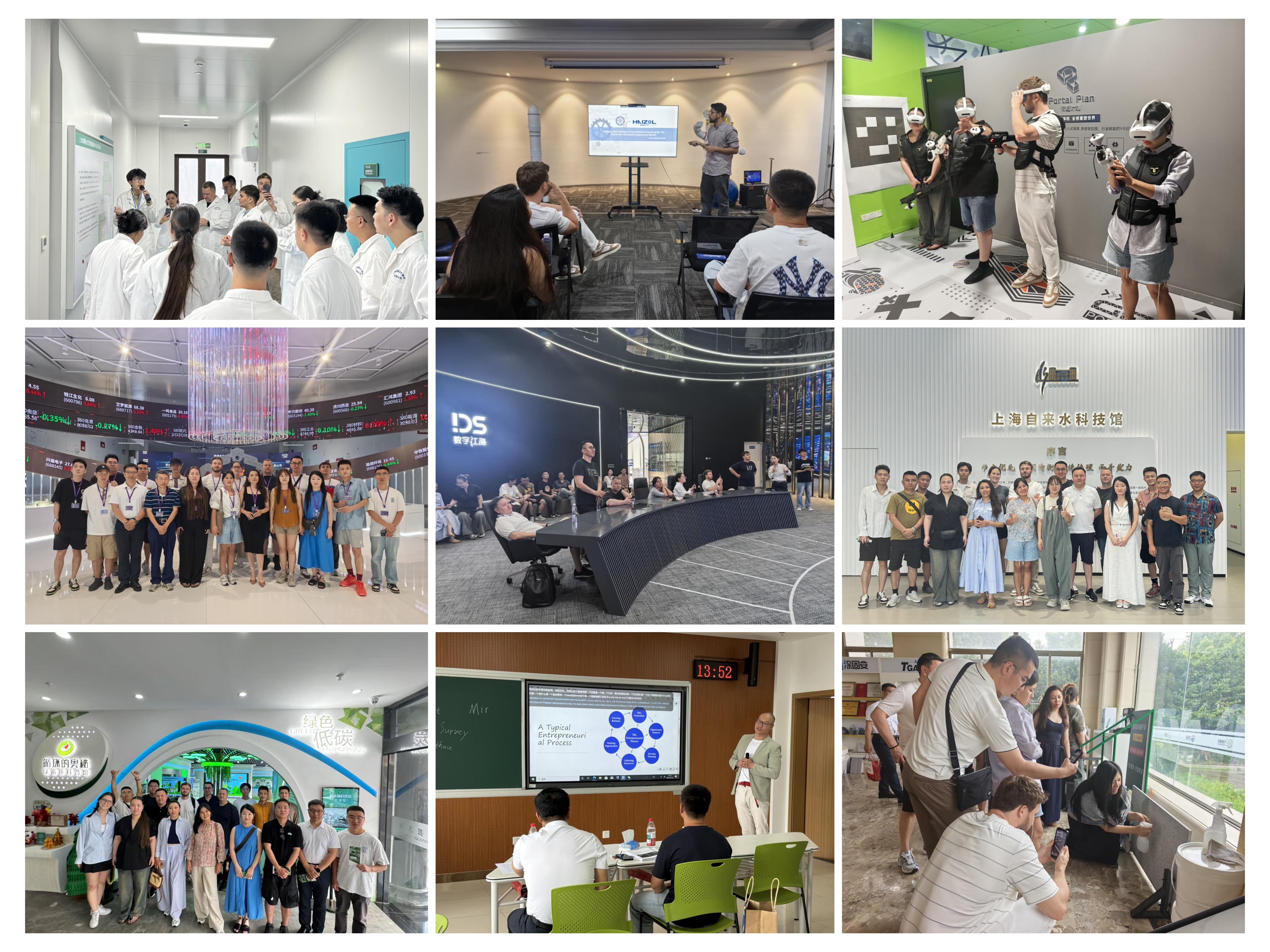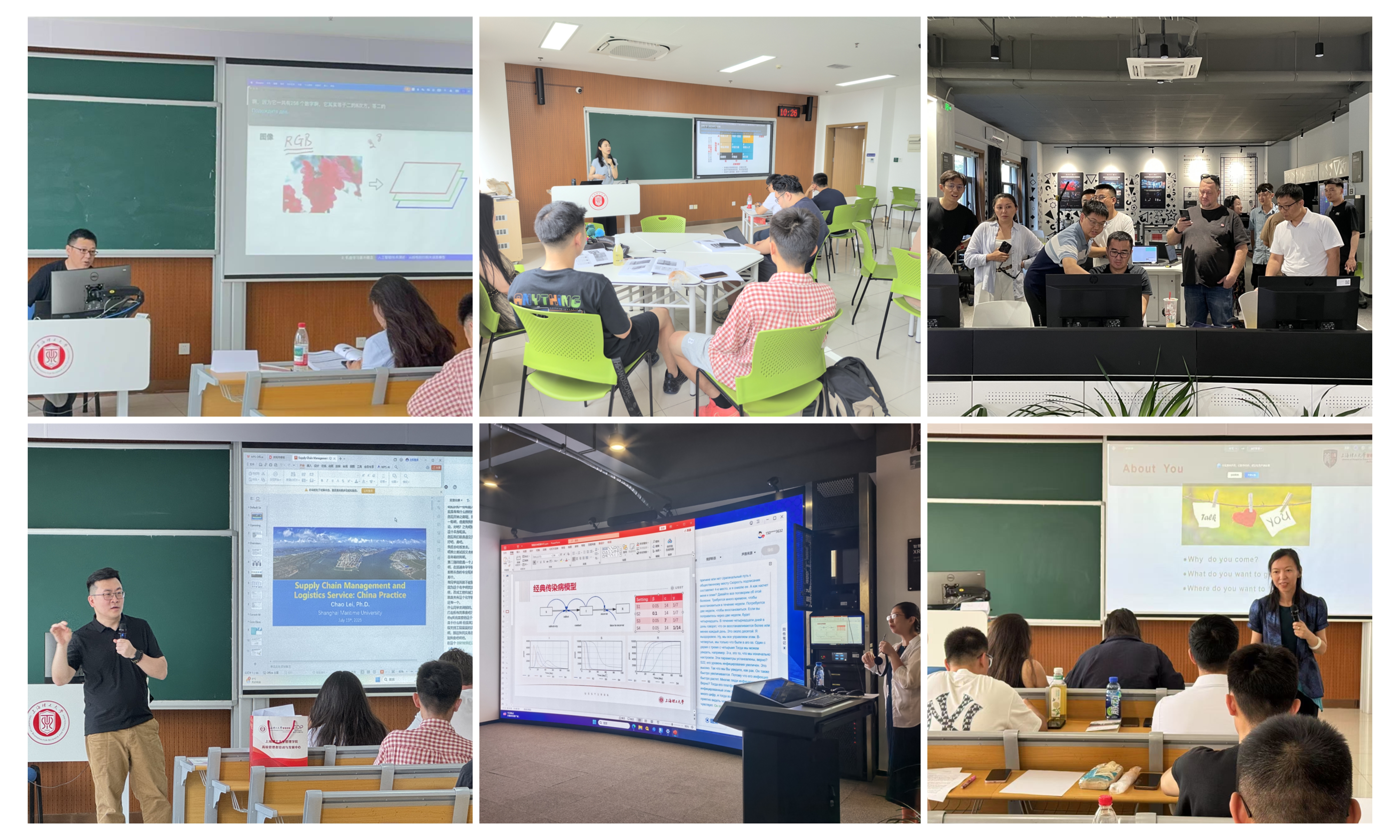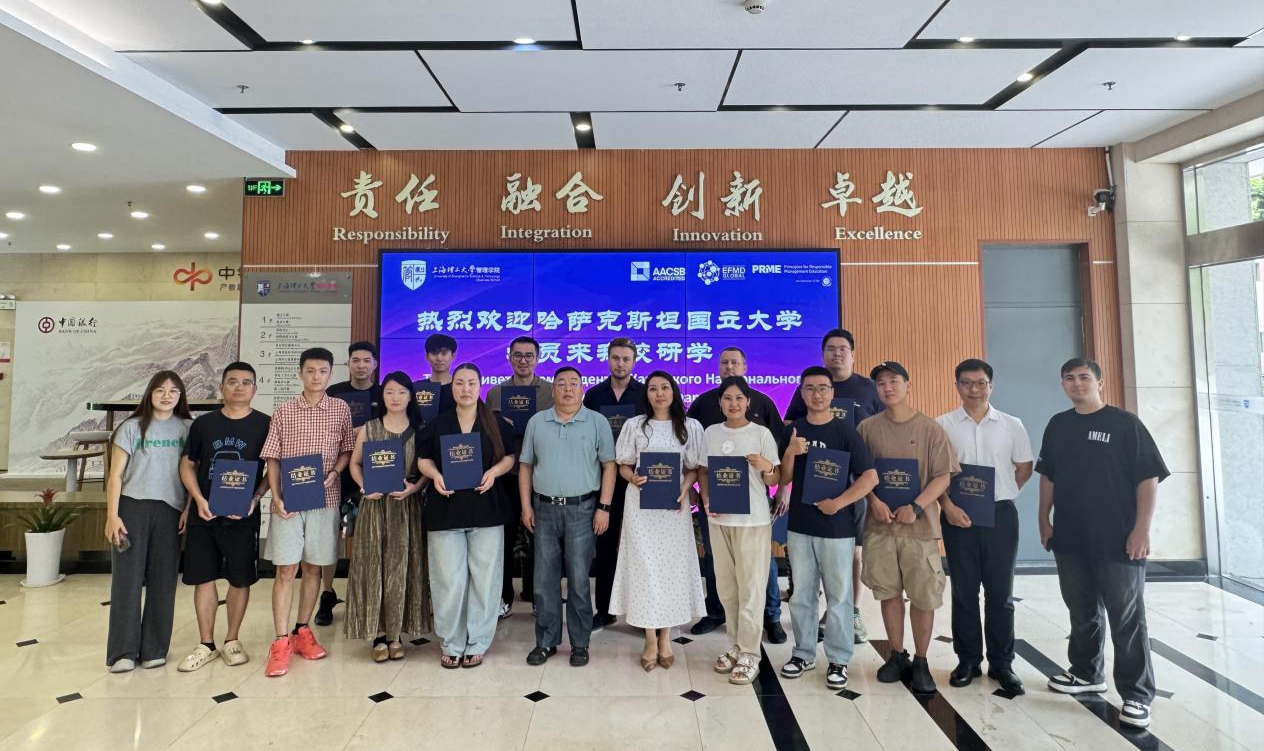On July 18, the “Second Al-Farabi Kazakh National University Research Study Program,” organized by the Executive Development Program (EDP) Center of Business School at USST, concluded successfully. Seventeen students from Farabi University gathered in Shanghai to engage in a two-week immersive study program focused on six key modules: emergency management, supply chain, investment, AI, talent development, and innovation/entrepreneurship. The program combined classroom-based deep learning with on-site city exploration, offering a multidimensional educational experience.
Mobile Classrooms “Decode” Innovation Hubs
The participants visited Shanghai’s most iconic industrial landmarks to witness China’s speed and intelligent manufacturing capabilities firsthand. Highlights included: (1) Shanghai Stock Exchange: Experiencing real-time trading at the world’s second-largest stock market; (2) Zhongqi Environmental Technology Group: Touring a waste plastic recycling demonstration facility; (3) Shanghai Cell Therapy Group: Observing the full R&D-to-clinical process of CAR-T cell drugs; (4) Century-old Yangshupu Waterworks: Learning about urban renewal models blending historical industrial architecture with cutting-edge computing power; (5) Digital Sea Experience Center: Exploring a CIM (City Information Modeling) system mapping Lingang Special Area’s 15-minute living circle, showcasing China’s “smart city” solutions.
Cutting-edge enterprises like Haizhi Online demonstrated how “AI + supply chain” enables global sourcing within 72 hours, while Manheng Digital used virtual reality to simulate remote equipment inspections.

Addressing Cutting-edge Needs, Interactive Teaching Ignites Intellectual Sparks
The curriculum of this research and study program was closely aligned with global technological development trends and the local development needs of Kazakhstan,combining foresight with practicality. The course content ranged from the basics of artificial intelligence, strategies for attracting investment in Central Asia, to supply chain management, emergency management, talent cultivation, innovation and entrepreneurship.
Faculty members and industry experts delivered high-intensity sessions, using practical models and real-world case studies to build a “Chinese Innovation” knowledge framework. Professor Qian Ying applied an extended SEIR model to analyze Shanghai’s pandemic response. Huang Zhongyi proposed a perception-strategy-execution framework for smart firefighting. Professor Lei Chao deconstructed how the Belt and Road Initiative reshapes the $31 billion China-Kazakhstan trade landscape through a digital shipping route linking Piraeus Port (Greece) and Laem Chabang Port (Thailand). Shen Li analyzed the “negative list + tax incentives” ecosystem for foreign enterprises in China, using case studies like Foxconn and Allbirds. Zhou Linjie guided participants to reassess social capital’s value in the Belt and Road context. Liu Chen traced the evolution from linear models to GPT large language models, showcasing the RAG techniques. Hu Zhonghui introduced Huawei’s Nine-Grid Talent Assessment and Alibaba’s Four-Step Leadership Development Model, offering insights into localized talent cultivation.
The students highly praised the overall design and implementation of the research and study program. They stated that the curriculum was precisely tailored, the teaching staff was highly qualified, and the enterprise visits were very rewarding.

Building Bridges of Friendship, Charting New Chapters of Collaboration
The students believed that this research and study program was not only an opportunity for knowledge upgrading but also a platform for promoting cross-cultural communication and building networks. Students from different institutions and backgrounds had in-depth exchanges during the joint learning and visits, sparking intellectual collisions and sowing the seeds for possible cross-border and interdisciplinary cooperation in the future.

The EDP Center of the Business School has always adhered to the training concept of “practicality, applicability, and effectiveness”. Relying on the disciplinary advantages of the Business School and the industrial resources in the Yangtze River Delta, it continuously constructs a “knowledge-industry symbiotic system”. In the future, the center will further expand its cooperation in industry-university-research with Kazakhstan and other countries along the Belt and Road Initiative. It will provide solutions in the context of Chinese-style modernization for more international managers and entrepreneurs, helping global partners achieve steady growth through open and win-win cooperation.
Translated by Wei Xin
Reviewed by Liu Weiwei


